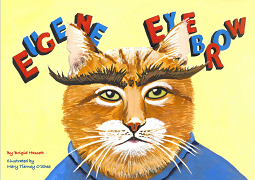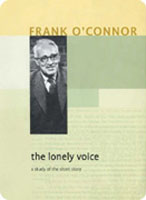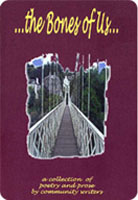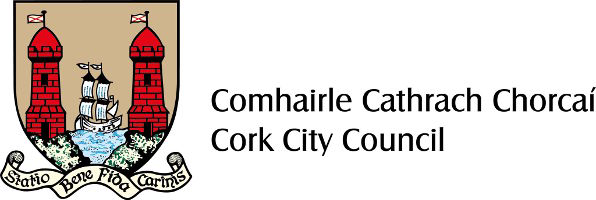Library Publications

Books published by Cork City Libraries. Copies for most of the titles are available for purchase in your local library. Most are also available to download in PDF format, and may also be available on Borrowbox. Please select a title to expand.
Eugene Eyebrow
Eugene Eyebrow by Brigid Hassett.pdf (size 2.5 MB)
Life is hard for a young cat with pointy eyebrows, as Eugene Eyebrow discovers. Bully cats Trevor and his gang The Meows mock Eugene’s unusual look. When Eugene learns to love his own eyebrows, he becomes the coolest cat in school! Written by Brigid Hassett, illustrated by Mary Tierney O’Shea. Funded from Dormant Accounts Fund, Department of Community and Rural Development.
Watch a sign language video of Eugene Eyebrow on YouTube, listen to the audiobook on Soundcloud, or read on BorrowBox.
Teen Graphic Novel 2021
Teen-Graphic-Novel-2021.pdf (size 14 MB)
Read our Teen Graphic Novel 2021, created by various teenage artists and writers from Cork and edited by Colin O’Mahoney, Alan Corbett and Kevin Smith
Genealogy Resources Guide
Genealogy-Resources-Guide.pdf (size 15.8 MB)
This step-by-step Genealogy Resources Guide by Johnathon Fehily shows you how to research your family tree using various records and online resources.
Cork Words: an anthology of contemporary Cork writers
Cork-Words-An-Anthology-of-Contemporary-Cork-Writers.pdf (size 48.2 MB)
Cork Words: an anthology of contemporary Cork writers Complied by Patricia Looney, Authors: various
Published by Cork City Libraries 2020, ISBN 978-0-9928837-9-9
The first of a regular series of Cork anthologies – Cork writers, some already well-known and some who will be better known, have contributed poems and prose pieces which celebrate Cork, a city of writers, a city of readers.
A Journey called Home: poems and stories of the new Corkonians
A_journey_called_home.pdf (size 2.9 MB)
A journey called Home : poems and stories of the new Corkonians : a Cork City Council Libraries project for Creative Ireland / edited by Paul Casey.
Cork: Cork City Libraries, 2018. ISBN 9780992883751
Poems and short prose pieces about Cork City experiences by writers living in Cork who are not originally from Ireland. The pieces are in the writers' own languages with English translations.
Here, There, In Between
Here_there_in_between.pdf (size 29.4 MB)
Here, There, In Between by the Kinsale Road Accomodation Centre Writers' Group, edited and compiled by Kathy Darcy and Paul Casey. Cork: Cork City Libraries for Cork World Book Festival, 2018.
Here, there, In Between is the result of a series of creative writing workshops with direct provision residents in the Kinsale Road Accomodation Centre, led by Paul Casey and Kathy D’Arcy. This project was supported by Cork City Libraries for World Book Fest 2018. Some of the pieces speak to better times, happy memories, dreams and goals. Others reflect on realities.
One Book One Community : A handbook for family reading in Knocknaheeny, Hollyhill, Churchfield and Sunday’s Well, Cork
One Book One Community.pdf (size 72.2 MB)
A profile of a community family reading project in the northside of Cork city, including tips and guides to encourage family reading.
A Room of their Own: Cork Carnegie Free Library & its Ladies Reading Room 1905-1915
A-Room-of-Their-Own.pdf (size 6.2 MB)
A Room of their Own: Cork Carnegie Free Library & its Ladies Reading Room 1905-1915 by Helen McGonagle. Cork: Cork City Libraries, 2011. Occasional Series (Cork City Library) no. 8. ISBN 978-0-992-8837-2-0.
When the Carnegie Free Library opened on Cork’s Anglesa Street on September 12th 1905, the building contained a room for the exclusive use of women – ‘The Ladies Reading Room’. Using, a collection of Annual Library Reports from the Carnegie Free Library in Cork from 1905-1915, A Room of their Own creates a picture of life for women in Cork at the time and assesses their social and political interests during this transformational period in Irish history.
The Immortal Deed of Michael O'Leary
The-Immortal-Deed-of-Michael-O-Leary.pdf (size 8.7 MB)
The Immortal Deed of Michael of Leary by Cónal Creedon. Cork: Cork City Libraries, 2011. Occasional Series (Cork City Library) no. 7. ISBN 978-0-9928837-1-3
Michael O’Leary was born in Iveleary, the ancient tribal homeland of the O’Leary clan. It is a land of the warrior and the poet, where history and story go hand in hand, and the spiritual and the natural complement each other without contradiction or contrivance. This is a story of Ireland with the clan O’Leary at its core. It offers a perspective of Irish history as viewed from the half-door of a hillside cottage in Iveleary. It is a saga that thunders along the beautiful green and leafy Lee Valley – from its mystical source high up over Gougán, all the way to the Gearagh and the broad meandering latticework of waterways of Corcach Mór na Mumhan. Iveleary is not just a destination, it is a journey into time; it is a sound, a scent, a state of mind. Cónal Creedon invites you to join him on his voyage of discovery into the heartland of O’Leary country; a land where fact and fiction dovetail together seamlessly, and pagan tradition and Christian belief become one.
The Statue: Cork's Monument to Father Mathew
The Statue: Cork's Monument to Father Mathew, The Apostle of Temperance by Antóin O'Callaghan. Cork: Cork City Libraries, 2011. Occasional Series (Cork City Library) no. 6. ISBN 978-0-9928837-0-6
In his new book Antóin O’Callaghan recounts Fr Mathew’s early life in Cork – the temperance campaign, the Famine era, the difficulties with his personal finances. The heart of this book, however, is the story of the commissioning and erection of the statue: who first proposed a monument to the much-loved priest, how the money was gathered, the involvement of two eminent 19th century Irish sculptors, Hogan and Foley, and the selection of such a prominent location for the statue. The Statue, and its importance to Corkonians, is brought to life in the final section, when eighteen people from a variety of backgrounds share their memories, observations and responses to Cork’s best known monument.
Bishopstown House: A summer residence for the Bishops of Cork and Ross during the 18th Century
Bishopstown_house.pdf (size 62.9 MB)
Bishopstown House: A summer residence for the Bishops of Cork and Ross during the 18th Century , written by James P. McCarthy. Cork: Cork City Libraries, 2011. Occasional Series (Cork City Library) no. 3. ISBN 978-0-9549847-6-2.
In the community park known as Murphy's Farm, in Bishopstown, lie the remains of what was once the summer residence of the Bishops of Cork and Ross. Successive Bishops — beginning with Peter Browne in the 1720s, the cleric who also gave Cork the Church of St Anne Shandon —created a substantial mansion house, outhouses and beautiful garden. In this third, richly illustrated edition, J.P. McCarthy brings back this lost treasure to the public domain. His detailed and animated book traces the history of the area and provides a comprehensive guide to what remains, and to how it once looked.
Rising from the Ashes: The Burning of Cork's Carnegie Library and the Rebuilding of its Collections
Rising_from_the_ashes.pdf (size 2.6 MB)
Rising from the Ashes: The Burning of Cork's Carnegie Library and the Rebuilding of its Collections, written by Thomas McCarthy. Cork: Cork City Libraries 2010. Occasional Series (Cork City Library) no. 2. ISBN 978-0-9549847-7-9.
In December 1920 the Carnegie Free Library on Anglesea Street, the adjoining City Hall, and other sections of the city centre of Cork were destroyed by fires set by members of the British Crown Forces. Librarian and poet Thomas McCarthy tells the story of the destruction of the library, and its subsequent rebuilding in this publication. He covers the various efforts to rebuild the city and its library, set against the evolving political struggles, the generosity and public spirit of the many donors, and the single-mindedness of then City Librarian James Wilkinson in pursuing his goal of a new city library. Copies of the book are for sale at €7 each from all our library service points.
A Grand Parade: Memories of Cork City Libraries: 1855-2005
A_grand_parade.pdf (size 18.8 MB)
A Grand Parade: Memories of Cork City Libraries: 1855-2005 / ed. Liam Ronayne, written by John Mullins and Liam Ronayne. Cork: Cork City Council, 2005. ISBN 0954984722.
A Grand Parade was published in December 2005, as the final contribution of Cork City Libraries to Cork 2005 European Capital of Culture, and to mark the 150th anniversary year of the passing of the first Public Libraries (Ireland) Act in 1855. Cork city was the first Irish city to adopt this Act. Providing an outline history of Cork City Libraries since their foundation in 1892, the book includes a selection of interesting memoirs from the last ninety years from members of the public and from staff. The book contains many photographs, showing the development of services across the decades, as well as images and accounts of a selection of activities, people, and buildings.
Our Friend Ethel Lilian Boole/Voynich
Ethel Lilian Boole Voynich.pdf (size 1.4 MB)
Our Friend Ethel Lilian Boole/Voynich by E. Taratuta. Translated by Séamus Ó Coigligh. 2008.
Cork-born writer, musician, and revolutionary, Ethel Lilian Boole, who died in 1960, was the youngest daughter of George Boole, mathematics professor at Queen’s College (now University College), Cork. Her first novel, The Gadfly, published in 1897 under her Polish husband’s surname Voynich, was immediately popular in America and Britain before millions of copies in translation were sold east of the Iron Curtain. Séamus Ó Coigligh translated Evgenia Taratuta’s Russian booklet (1957) on the life and work of Ethel Lilian Boole/Voynich. Cork City Libraries and the Boole Library in University College Cork made Séamus Ó Coigligh’s translation and his additional notes available digitally through their online catalogues in 2008, coinciding with the translator’s ninety-second birthday.
Peirspeictíocht Éireannach ar Litríocht na hEorpa: Saothar Sheamuis Uí Choigligh
Osuilleabhain_ocoigligh.pdf (size 914.4 KB)
Peirspeictíocht Éireannach ar Litríocht na hEorpa: Saothar Sheamuis Uí Choigligh, le Micheál Ó Súilleabháin. Leabhar leictreonach. Leabharlanna Cathrach Chorcaí, 2013. Sraith Ócáideach (Leabharlanna Cathrach Chorcaí) ur. 4.
Beginning in the mid-1950s, literary critic and linguist Séamus Ó Coigligh served two distinct language markets. In the major English market, through his column in the Irish Times, he acquainted his readers with works of accomplished Russian writers. This service culminated in his translation of Evgeniya Tatatuta’s study on E.L. Boole Voynich, author of The Gadfly. In the minor market for Irish language books and journals he drew on writers in Spanish, Russian, and Hungarian to introduce his readers to some of the richness of European literature. In his survey of the latter work, Micheál Ó Súilleabháin addresses some of the inherent limitations in serving a very small host language market. Ó Coigligh deserves to be remembered at least as much for his Irish as for his English work.English translation of title: ‘An Irish perspective on European literature: the writings of Séamus Ó Coigligh’.
The Fleischmanns: A Remarkable Cork Family
The_fleischmanns_a_remarkable_cork_family.pdf (size 10.9 MB)
The Fleischmanns: A Remarkable Cork Family, A Companion to the Fleischmann Centenary Celebration with contributions by Patrick Zuk, Ruth Fleischmann & Séamas de Barra. Cork: Cork City Libraries 2010. ISBN 978-0-9549847-5-5.
As Seamas de Barra writes 'the varied achievements of Aloys Fleischmann's multi-faceted career - as teacher, scholar, conductor and organiser - have had a profound and lasting influence on Irish musical life'. It is equally true that he came from a remarkable family who made unique contributions to the cultural life of Cork in the 20th century.In these essays, published to mark the centenary of the birth of Prof. Aloys Fleischmann, de Barra, Ruth Fleischmann, and Patrick Zuk recount the life and work of 'Prof.', and of his parents Aloys Snr. and Tilly.
Joan Denise Moriarty: Ireland's First Lady of Dance
Joan_denise_moriarty_irelands_first_lady_of_dance.pdf (size 7.2 MB)
Joan Denise Moriarty: Ireland's First Lady of Dance. Edited by Ruth Fleischmann. With contributions by Seamas de Barra, Patricia Crosbie, Ruth Fleischmann, Monica Gavin, David Wallace. Digital photography by Max Fleischmann. Cork: Cork City Libraries, 2012. ISBN 978-0-9549847-8-6..
This Cork City Libraries publication forms part of the Joan Denise Moriarty centenary celebrations. It chronicles almost sixty years of work for ballet in Ireland and service to the cause of dance unparalled in the short history of ballet in this country. It includes contributions on the Cork Ballet Company (1947-1993); on Ireland's first professional ballet company, Irish Theatre Ballet (1959-1964); and her second professional company, Irish Ballet Company, later re-named Irish National Ballet (1973-1989); more on Moriarty's choreography, on the music for the ballet and on her legacy.
William Dunlea: The Voice of Erin
William-Dunlea.pdf (size 6.1 MB)
William Dunlea: The Voice of Erin / written by Jim McKeon. Cork: Cork City Libraries 2008. ISBN 0954984749
Jim McKeon’s biography of William “Wallou” Dunlea, examines Wallou’s early life, from growing up in the lanes of Blackpool in the north side of Cork city, on to the family’s Republican sympathies, as well as his singing career from his earliest days, through to his singing success in his native Cork, to his BBC broadcasts from London, and through his concerts in America where he became known as “the Voice of Erin”. This publication is illustrated with reproductions of photographs, programmes, posters and newspaper clippings. The book also outlines some of Dunlea’s other interests, such as, playing music on the accordion and other instruments, road bowl playing, painting, and his strong support for Glen Rovers Hurling Club.
The Lonely Voice

The Lonely Voice: a study of the short story endures as a classic work on the short story genre. First published in 1962, the work represents O’Connor’s philosophy on the technique of the short story and his opinions on some of the great short-story writers such as Chekhov and Maupassant. Cork born writer Frank O’Connor is regarded as one of Ireland’s best writers of the twentieth century and has a world-wide reputation for his short stories. Currently unavailable for download.
Principles of Freedom

Principles of Freedom by Terence MacSwiney. Cork: Cork City Council, 2005. ISBN 0954984706.
The book is based on a series of articles written by Terence MacSwiney for the Irish Freedom journal, between 1912 and 1916, and posthumously published in book form in 1921. Author and politician, he was at the heart of the Irish cultural revival at the beginning of the twentieth century in his native Cork. He helped to form the Cork Celtic Literary Society and wrote numerous poems and articles for the Society’s journal and, with Daniel Corkery, founded the Cork Dramatic Society, writing plays such as The Revolutionist, The Holocaust, and The Warriors of Coole. Currently unavailable for download.
The Lost Soul of the World: The Cork Jewish Community and the Fiction of David Marcus
The lost soul of the world.pdf (size 6.9 MB)
The Lost Soul of the World: The Cork Jewish Community and the Fiction of David Marcus by Gerald Y. Goldberg. Cork. Cork City Libraries, 2008. Occasional Series (Cork City Library) no. 1.
Written by Gerald Y. Goldberg. Published in 2008 by Cork City Libraries to coincide with a civic reception for David Marcus granted by Cork City Council. The decision by Cork City Council to grant a Civic Reception to David Marcus, one of the city's greatest literary sons, prompted Cork City Libraries. David Marcus has made a unique and decades-long contribution to Irish literature, as a writer of novels and short stories, as a memoirist, as an editor and anthologist of an astonishing list of collections, as the long-serving editor of 'New Irish Writing' in the Irish Press, and as mentor to many emerging writers.
Learning from the Greats: Lessons from the Great Writers
Learning_from_the_greats.pdf (size 20.5 MB)
Learning from the Greats: Lessons from the Great Writers, written by Billy O'Callaghan. Cork: Cork City Libraries, 2014. Occasional Series (Cork City Library) no. 5. ISBN 978-0-9549847-9-3
Getting your words down on the page is a whole world removed from talking about doing it - WRITERS WRITE that’s what defines them. But, says prize-winning author Billy O’Callaghan, before they write, and during and after they write, they read. A lot. And they read well. In this book Billy O’Callaghan lists his favourite writers, and presents their words of advice on the writing craft. He gives us insights on his own creative thought processes and his own favourite motivational moments. This is, in effect, a coaching book for writers, here, in Thomas McCarthy’s words “is the masterful advice that will make you stronger as a writer”. Billy O’Callaghan is the author of three short story collections: In Exile (2008), In Too Deep (2009), and The Things We Lose, the Things We Leave Behind (2013), which won an Irish Book Award in 2013. His fiction has appeared in many magazines and journals around the world.
The Bones of Us

The Bones of Us. Cork: Cork City Council / Cork Anti-Poverty Resource Network, 2005. ISBN 0954984707.
In this collection, sixteen people active in the communities of the north side of Cork city have put pen to paper and produced a beautiful book of prose and poetry. Written by students from the Write Together Centre, the book captures the essence of a particular place in a particular time. This was published as an initiative under the Cork 2005 programme between Cork City Libraries and Write Together. Currently unavailable for download.


